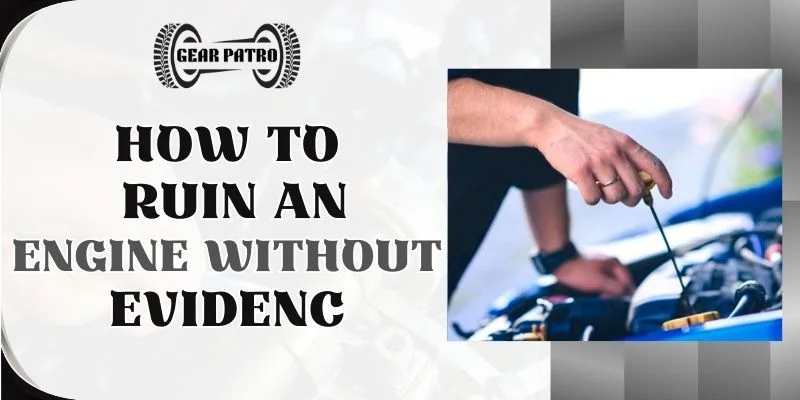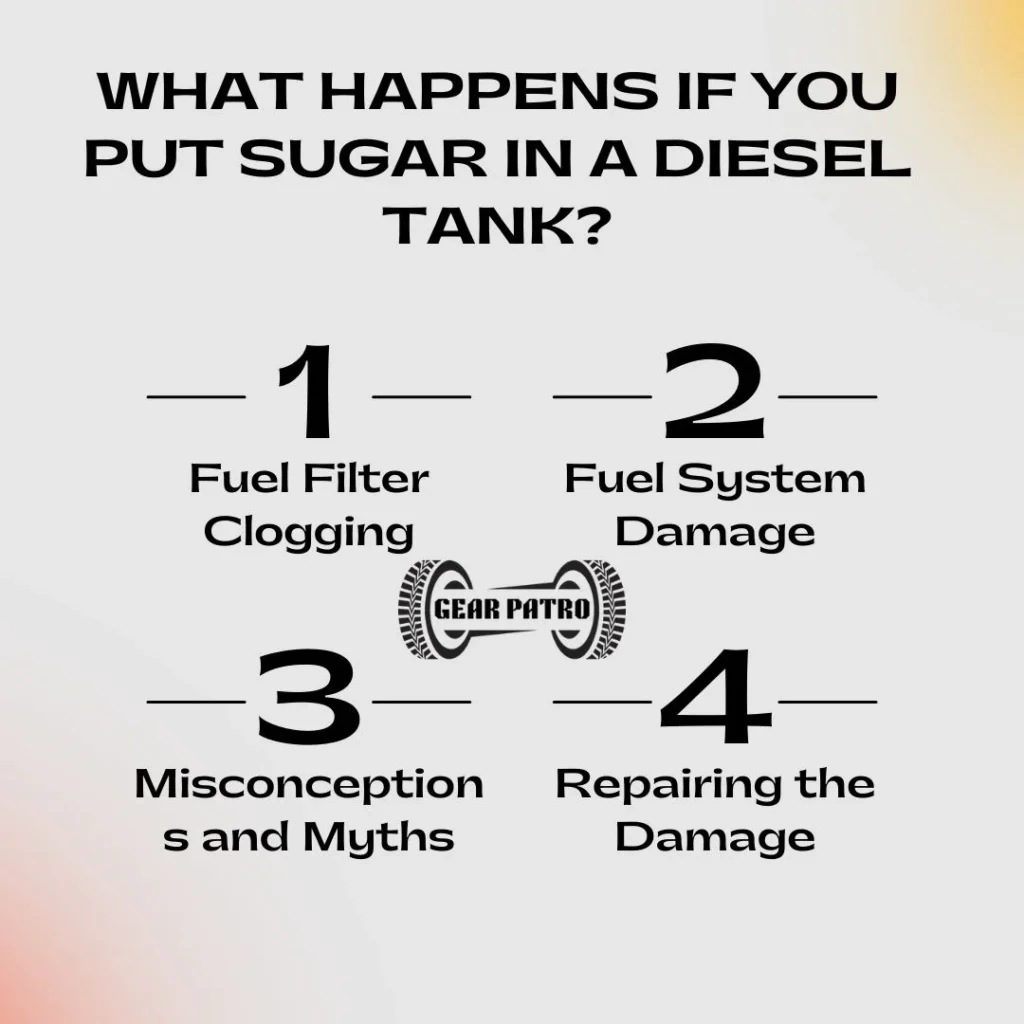Among all the components of a vehicle, the engine is the most complex and requires proper maintenance to remain in optimal working condition. As with everything in life, there are dark sides as well, such as people who intentionally damage engines without leaving any trace behind.
The objective of this guide is to explore different ways in which we can damage our engines without being noticed. As well, we will highlight what happens when sugar is added to diesel engine tanks and fluids that affect diesel engines in a permanent way.

Some vehicle owners damage their engine without knowing it, even though they are well concerned about the longevity and functioning of their vehicle. Detecting and preventing such crimes requires an understanding of such techniques.
In addition, harmful chemicals are added to motor oil, important components are interfered with without sufficient knowledge, or advanced electronic management techniques are used. Individuals must know the types of legal action that may be taken in the event that harm is detected and proven to them.
What Happens if You Put Sugar in a Diesel Tank?
Adding sugar to the fuel tank of a car could ruin the engine, according to a common modern myth. Adding sugar to the fuel system will adversely affect engines, even though sugar does not directly damage them.

A deeper understanding of how sugar might harm a diesel tank is imperative, along with how we can resolve the problem if it is accidentally added. There are a number of adverse effects, including:
1. Fuel Filter Clogging:
By building up sugar in the filter fuel, sugar reduces the flow of diesel to the engine, resulting in engine performance problems, and in severe cases, freezing.
2. Fuel System Damage:
Sugar may cause damage to fuel injectors if it has entered the system. However sugar is not responsible for causing the damage to the engines, but rather blocked injectors have a detrimental effect on the mixture of air and fuel that is required for combustion, which leads to a buildup of harmful gases
3. Misconceptions and Myths:
Despite common belief, sugar is not capable of destroying an engine. The theory that sugar can cause engines to freeze or “seize up” is unsupported by any evidence. Generally, the restriction in fuel flow is the main factor causing the damage.
4. Repairing the Damage:
For people who think sugar has been added to their fuel tank, it is recommended that they drain their fuel tanks, replace the fuel filters, and inspect their fuel lines and injectors for sugar particles. In order to ensure thorough cleaning and prevent engine damage, it is best to seek professional guidance.
Adding to your expenses is the expense of removing fuel from the system, replacing or repairing clogged filters, and dealing with any contamination caused by microorganisms.
What Fluids Will Destroy a Diesel Engine?
In spite of its effectiveness and performance, diesel engines can suffer damage if they are filled with certain fluids. Here are a few of them:
It is possible to damage a diesel engine when water is added to it, since it causes metal components to corrode, damages fuel injectors, and reduces the lubricating ability of the fuel.
In addition to its low flash point, gasoline catches fire too quickly when added to a diesel tank, causing overheating, knocking, and damage to general engine components.
Most of the time, it is not recommended to use the fuel system of a diesel engine since gasoline pumps, gasoline injectors, and other components may be damaged. The viscosity and burning characteristics of transmission fluid are different from those of diesel, which causes engine damage and poor performance.
Conclusion
Vehicle owners are responsible for keeping an eye on the surrounding area so that they can ensure their vehicle’s integrity. People can damage your car’s engine without leaving any trace.
Using the right fluids, checking the fuel quality, and acting quickly when a problem arises are the best ways to keep your diesel engine healthy and increase its lifespan.
